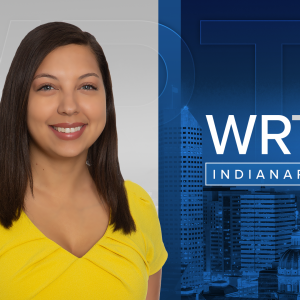INDIANAPOLIS — Did you know mental health is an option when dialing 911 in Marion County?
This comes after an influx of mental health calls and the city's effort to provide clinician-led mental health treatment.
RELATED COVERAGE | City's Clinician-led response Team goes 24/7
The option allows dispatchers to ask questions related to the mental health crisis to decide whether to send medics, IMPD's Mobile Crisis Assistance Team or the city's clinician-led response team.
The Metropolitan Emergency Services Agency says this is an effort to better communication among first responders and community members.
"911 is this a police, fire, mental health or EMS emergency?" is how dispatchers will respond to calls.
WHAT YOU'LL HEAR WHEN YOU DIAL 911:
"It gives the the caller a sense of of safety, because they had the choice to choose a mental health option instead of the police. Sometimes when they say police, they get nervous if things kind of end bad, but when you say mental health, they choose that option," said Dispatcher Emerald Eddie.
Dispatcher Emerald Eddie said the option better sets first responders and patients up for success.
"This is my goal, is to still help people. It's a hard job to do, because most people, they just, they can't handle the stress of it. I am the middle man and I enjoy it," said Eddie.
MESA Chief, Tom Sellas, said being able to filter out mental health calls specifically helps alleviate some of that stress.
He says dispatchers began answering the lines this way when the city's clinician-led response team began.

"We wanted to make sure that runs that would fit that service, where we made sure that you know those runs are going where they need to go, and a lot of times," said Sellas.
The idea sparked in meetings.
"We started looking at the data on that, and again, we coordinate together, and we try to say, okay, what are we missing? Are there any gaps at it? And this is one that was identified early on," said Sellas.
Clinican Eric Arnold said not only does it free up police, clinicians are able to connect with patients on a personal level.
"I have the ability to to interact with the individual that we're dealing with on a level that somebody else has never experienced. 99% of the time these unhoused individuals are experiencing this because of a mental health issue, which is a byproduct, or addiction is going to be a byproduct of that, this self medication. So it's just a vicious cycle. And so for myself, and as in the team, you know, not only can we provide resources and to help the need, but we can also serve as examples to the community that recovery is possible," said Arnold.
MORE COVERAGE | Budget for Clinician-led Response Team expanding
Arnold says there is a rise in calls.
"Yeah, we're definitely seeing an uptick. We've had 350 calls since as of May," he said.
But he's hoping that will continue as more people learn about the option.
"In my opinion, it's the most under treated issue. It's the most stigmatized issue. We need to get these folks help. They need the help," said Arnold. "Once the community learns more that they can ask for us, they can simply request CLCR, that it's going to open up more more opportunities for us to help the community in general, as a whole, take away some of the stigma, hopefully, so people aren't as ashamed to to call and say, hey, I need help, and breaks down those barriers."
Marion County dispatchers also encourage you to call the non-emergency number when possible. That number 317-327-3811.
If you are having a mental health crisis or thoughts of suicide, you can also get immediate assistance by dialing or texting 988.
MESA is hiring more telecommunicators.
For those seeking employment at the 911 center, they can go to Indy.gov/jobs.





